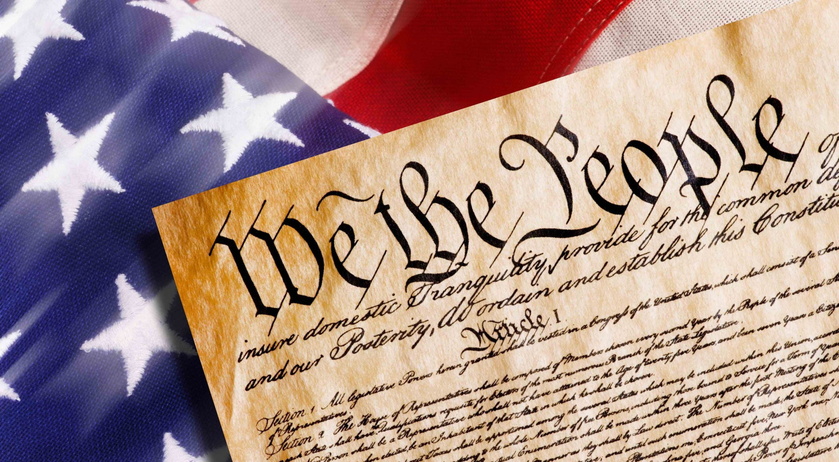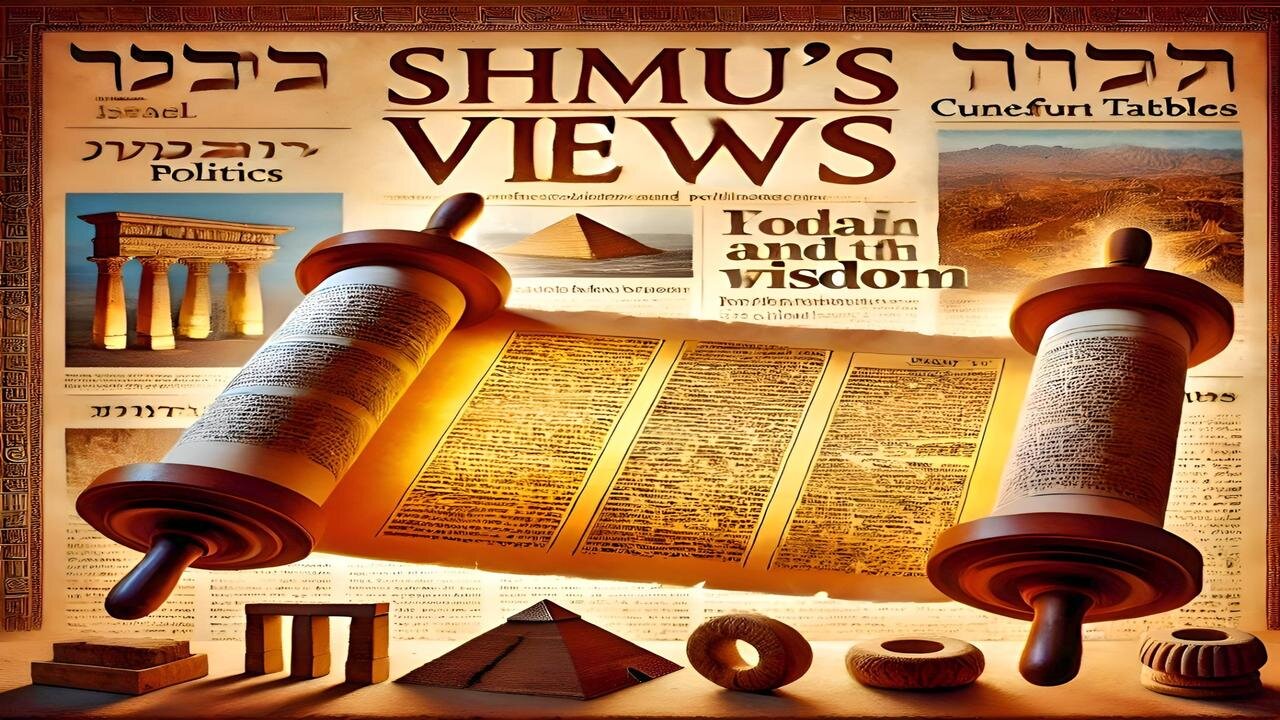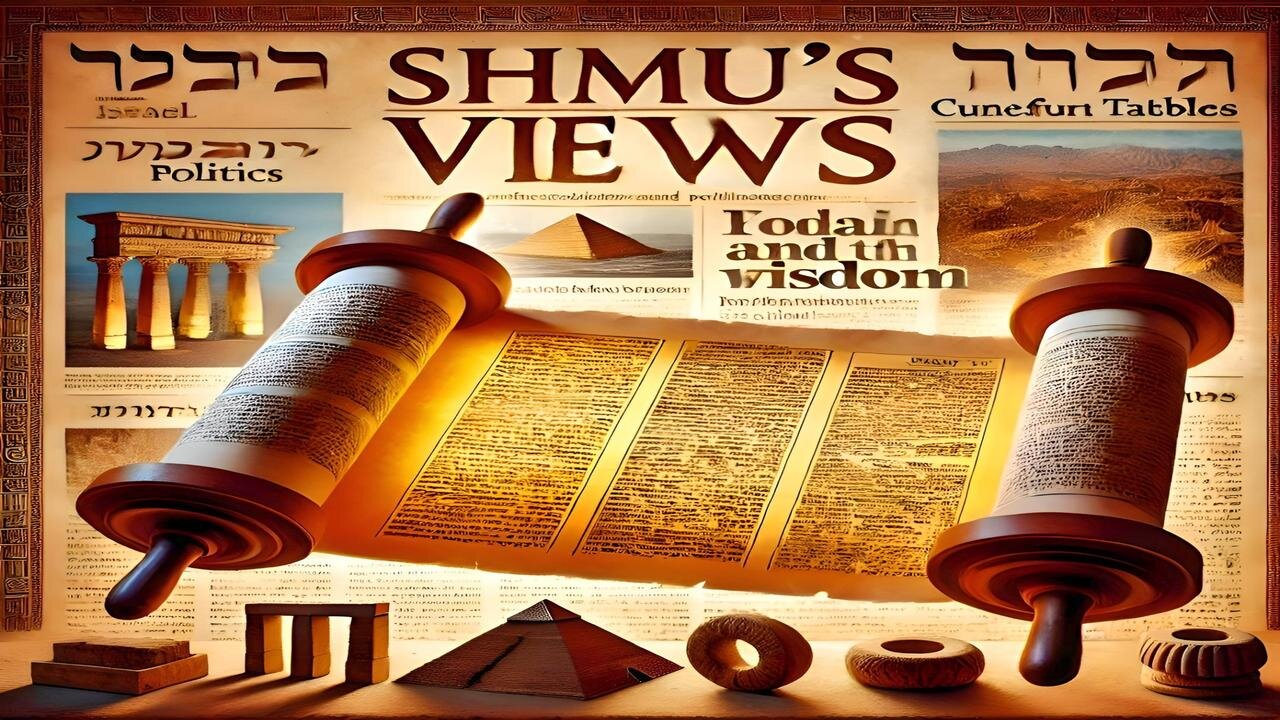
America is not now, nor has it ever been a Democracy!
by: Shmuel ben Shlomi
The United States is not now, nor has it ever been a true democracy; and that is a good thing.
When a federally elected government official, be they a President, member of Congress or the Judiciary take the oath of office they are required to raise their right hand and take an oath. That oath is as follows:
"I do solemnly swear (or affirm) that I will faithfully execute the Office of [insert elected name of office] of the United States, and will to the best of my ability, preserve, protect and defend the Constitution of the United States.”
There is no swearing of an oath to protect any kind of Democracy, Republic or any other kind of politically motivated form of governance. The entire core of the oath is to "protect and defend the Constitution of the United States,” PERIOD!
Over the past several decades going at least as far back as the days of President Franklin D. Roosevelt this concept of America being a democracy has been increasing, particularly in the minds and speeches given by politicians, especially those who lean more left of center on their ideologies regardless of their political party.
In order to understand why this distinction between a democracy and a Constitutional Republic is so important and how it is not fully grasped by many is significant. Those who truly think or are trying to turn America into a democracy instead of what the Founder’s intended need to see how this seemingly harmless change in thinking is radically changing the face of governance in the nation.
What exactly is a democracy? How did the concept begin and how does it differ from that proposed by the Founders and creators of this Constitutional Republic?
As far as we know this concept of a Democracy was begun in ancient times in Greece. There is was called δημοκρατία n-m a newly created form of governance of, for and by the people of Greece. Originally it was created to allow total participation of the citizens in the daily governmental decisions made. When it was first tried it became what we call a “Direct Democracy” where every citizen was involved in the passing of laws and the actual carrying out of the legislation. It was eventually replaced by a “Representative Democracy” in which someone representing certain groups of citizens would be “elected” or chosen by the people to act as a surrogate spokesperson for all they represented. This became necessary over time as the Greek Empire began to expand and individual participation in every aspect of governance due to the growing bloat within its government, the distance from Athens as the Empire grew and increased its number of citizens.
This form of government was very different from what came before it. Nearly all governments before this time were monarchical in nature with very few exceptions. While this type of governance is still practiced in various parts of the globe even today, it is dying off in most of the “First World” nations. Those that remain in Westernized societies have become mainly figureheads for the parliaments and congresses that have essentially replaced the role of the monarch.
Democracy eventually gave way to a new form of government known in Latin as res publica - Republic - and had its first rise in importance during the rise of Rome as a nation.
In a Republic the power to rule is jointly held by the people and an elected official (called a Senator). This “representative of the peoples would go to the city of Rome a few times a year and bring forth legislation that would benefit the peoples he/she represented in their districts. In the birthplace of a Republic, as the Roman State began to expand well beyond its borders this representative form of government, since it was not regulated by any kind of real charter of mandate began to fall into corruption, bribery, and nefarious dealings of all kinds that benefited the Senators more than those they represented. Eventually, by the period just a few years prior to the First Century CE the people had enough of the corruption and demanded a “strong man” to usurp the power from the legislative class and centralize it into one person. This process began under two leaders in Rome - Ptolemy and Julius Caesar, both powerful generals in the Roman army. Eventually this would lead to the coming of the “strong man” named Octavia Augustus who stripped the Senate of its power and reigned in all power under his tutelage alone. Thus began the end of the Republic and the beginning of Roman Imperial Reign which lasted nearly a thousand years. Until that time to the period around the late 1600s CE and 1700s CE all peoples were ruled by one Imperial leader after another, the only thing that really changed were the players, but the style of rule - Imperialism, still ruled supreme. If the leader was benevolent then things went well for the people, but if a despot or tyrant sat on that Imperial Seat then life for the common people was a living hell. Nearly six hundred years ago many people, especially those in Western Europe had enough. They wanted to be free from despotic rule. In England this was further witnessed by the birth of the Magna Carta around 1215 CE - “The Great Charter.” For the first time that we know of an English monarch (King John) agreed in principal to put in writing certain guarantees of safety and protection by the monarch that would benefit the wealthy class, barons and merchants of standing from seizure of property and goods. While this first step toward freedom from kings and queens did little to benefit the common man, it was the first step toward engineering power from a monarch to those he rules, even if those were the richest in the monarch’s kingdom.
Since the inception of society some 7,000 years ago all human beings have been ruled by various forms of governance — mostly monarchal and despotic. True Democracy was tried and failed. A true Republic was tried and failed. A limited form of rule by the people (wealthy people) was tried and failed. By the end of the 1600s the common man was crushed under the weight of ever changing tyrannical rule. With the discovery of a entire new world (soon to be called The Americas) the common man began to flee to its borders in search of both religious, political and entrepreneurial freedom of expression. By the middle 1700s this new America was bursting with ideas for a new, untried form of governance that would be both ruled by the people who are represented by one of their peers that they elected. In order to guarantee the success of this new venture in governing the men and women of the age saw the absolute need to put in writing and signed by them all a document that would surpass anything that had ever come before it since the beginning of human civilization.
That document is The United States Constitution. It spells out in clear speech the rights of the people and the limits of its government. It is the bedrock, the foundation stone, the hitch-pin of the country and has been since 1789 when it was ratified by the people through their duly chosen officers.
While the U.S. Constitution, from the date of ratification (1789) was and still remains the supreme law of the United States of America. It may be amended but never radically changed or altered. Most, not all, of the Constitution is “absolute’ where the language indicates such. For example:
The Second Amendment of the U.S. Constitution states:
“A well regulated Militia, being necessary to the security of a free State, the right of the people to keep and bear Arms, shall not be infringed.”
This is based somewhat on the English common law rule found in the so-called English Bill of Rights of 1689 whose language is quite specific and until the latter part of the 20th Century was understood to mean an “Absolute Right.” The words “shall not be infringed” is the guarantee of it, as well as the First and Fourth Amendments are.
As the United States began to expand in landmass and population the only thing that has kept the Constitutional Republic intact has been the Absoluteness of certain Articles and Amendments contained in it. And, sadly, like all those who came before, there has begun, particularly since the days of globalist President Woodrow Wilson in the early 20th Century, followed by the nearly twelve-year socialist reign of President Franklin D. Roosevelt, the nation has seen a decline in the love for or understanding of what is contained in the U.S. Constitution. This has led to a familiar decline of the “American Empire” as the very core and foundation of what has made the nation unique in the annals of history, the U.S. Constitution and The Bill of Rights. As more and more “elected” politicians whittle away at that Foundation, and the people are lulled into more and more delusion and moral decline we can know what may follow if we just examine the very first Republic in Rome as it neared its end in favor of a tyrannical form of leadership.
When power and corruption are in the hands of the elite, when the common man is left ignorant and unaware through a lack of education and understanding of where they came from and what they stand on/for then the nation and its people become prey and pawns of those who will always look for an advantage to gain and keep more and more of the power, which according to the U.S. Constitution is reserved for the people; they keep for themselves.
How did our ancestors in this nation deal with such belligerence and audacity from its leaders — Revolution.
Are we there yet? Can we still keep the U.S. Constitution as our guide and supreme law of the land? Or, will it require something more grounded in the spirit of American liberty — Revolution? Or, will be go the way of Rome? Time will tell and it will be based on what we do today, in the here and now. The choice is ours.
"Societies exist under three forms sufficiently distinguishable.
Without government, as among our Indians. Under governments wherein the will of every one has a just influence, as is the case in England in a slight degree, and in our states in a great one. Under governments of force: as is the case in all other monarchies and in most of the other republics. To have an idea of the curse of existence under these last, they must be seen. It is a government of wolves over sheep. It is a problem, not clear in my mind, that the 1st. condition is not the best. But I believe it to be inconsistent with any great degree of population
The second state has a great deal of good in it. The mass of mankind under that enjoys a precious degree of liberty and happiness. It has it’s evils too: the principal of which is the turbulence to which it is subject. But weigh this against the oppressions of monarchy, and it becomes nothing. *Malo periculosam, libertatem quam quietam servitutem. Even this evil is productive of good. It prevents the degeneracy of government, and nourishes a general attention to the public affairs.
I hold it that a little rebellion now and then is a good thing, and as necessary in the political world as storms in the physical.
Unsuccessful rebellions indeed generally establish the encroachments on the rights of the people which have produced them. An observation of this truth should render honest republican governors so mild in their punishment of rebellions, as not to discourage them too much. It is a medicine necessary for the sound health of government." - Thomas Jefferson to James Madison, January 30, 1787
[* "I prefer the tumult of liberty to the quiet of servitude.”]

Parshat Naso is the longest single parsha in the Torah, clocking in at 176 verses. That’s Torah’s way of saying, “Hey, you might want to take a long , serious and contemplative look at what you’re about to learn.”
Also on Substack: https://substack.com/home/post/p-165229596?source=queue
The 613 Commandments of Torah: Part 18 - the Blog
https://shmusviews.blogspot.com/2026/03/the-613-commandments-of-torah-part-18.html















